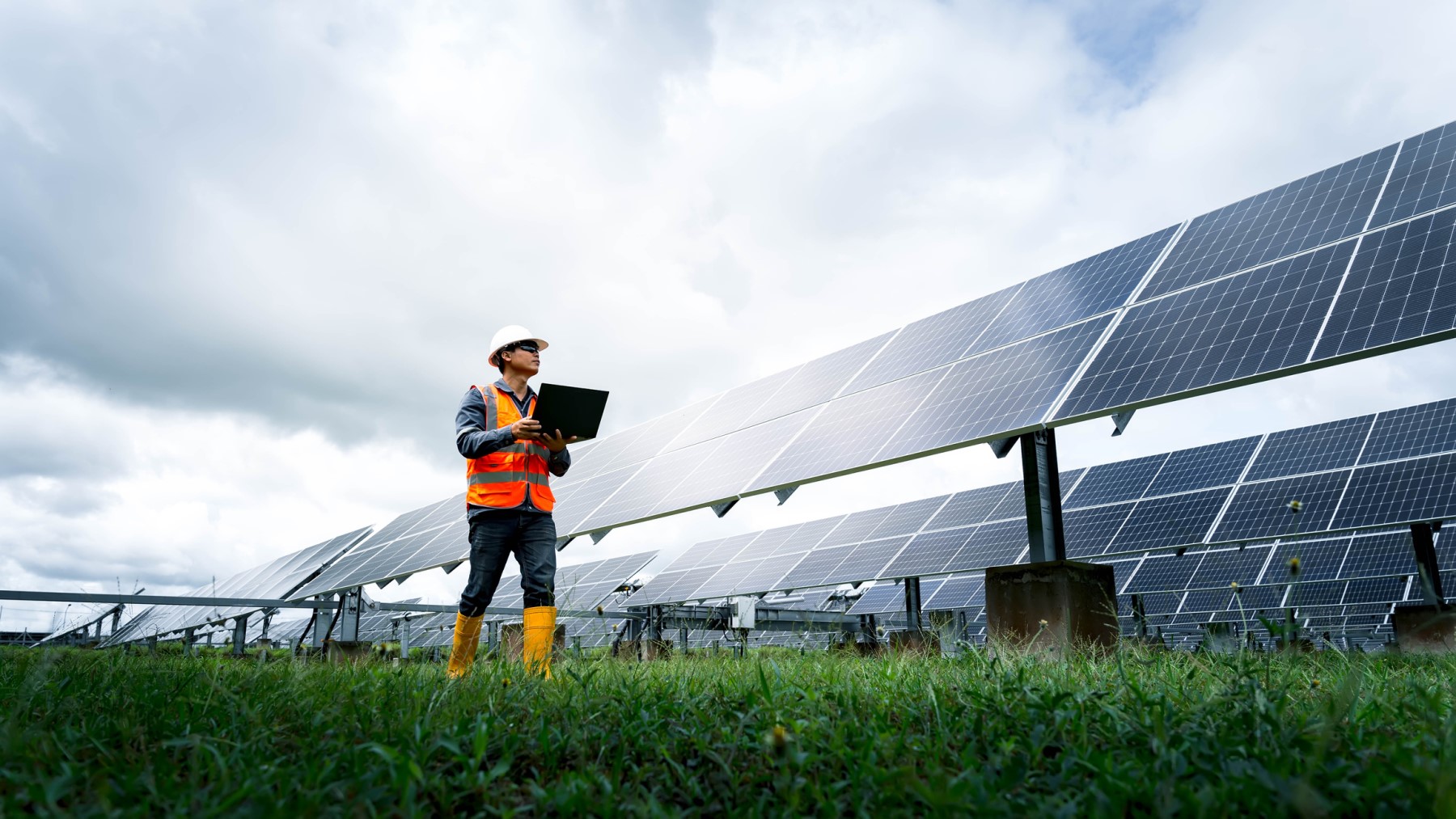Wire Management Goes Metal
by Scott Rand
June 23, 2023
Since the advent of large-scale solar, polymetric (plastic) materials have been the predominant material used in the wire management sector. However, these products, ranging from off-the-shelf zip ties to plastic-coated hangers, pose significant problems. The most pressing concern is the rapid degradation of plastics due to exposure to UV rays and heat.
For plastic components, the question is not “if” it will degrade, but rather “when.” Perhaps you have come across damaged plastic zip ties scattered on the ground of a solar project or witnessed the complete deterioration of the color on a plastic-coated hanger within a few months. These instances serve as tangible illustrations of components that are prone to failure.

Once the plastic begins to deteriorate, how can the product guarantee protection against corrosion? How can it ensure the safety of conductor insulation? How can it maintain a reliable bond path? There are no simple solutions to these questions; only consequences await if they are not adequately addressed.
Recognizing the swift degradation of plastic, the industry is now shifting towards metal alternatives. However, it is crucial to note that not all metal solutions are equally effective.
A significant number of designers are drawn to plastic-coated metal products due to the perception that they combine the durability of metal with the added benefit of a softer plastic coating. However, this misguided sense of security has led to the emergence of products like the plastic-coated metal cable tie. Buyers should exercise caution when considering products that claim to have zinc-coated metal. Such coatings often consist of only a few microns of zinc, which is the minimum requirement to meet environmental conditioning standards.
As project lifetimes increase, the zinc thickness requirements should also increase. 15-25 microns of zinc is more appropriate in these cases, which is proven by long-length salt spray conditioning. Even more effective are all-metal products with engineered surfaces. They are reliable, result in a reduced LCOE, and have a lower carbon footprint.
There are several instances of engineered surfaces, such as an aluminum hanger meticulously crafted with smooth, rounded edges at each cable contact point. Another example is a purposefully shaped round wire form capable of securely holding and managing cables. When metal wire management components are appropriately engineered, they can endure the lifetime of a solar power plant, even under extreme weather conditions. Additionally, the environmental footprint of metal fabrications is considerably lower when compared to the manufacturing processes of other polymeric materials. In fact, as stated by the Aluminum Association, a 12-oz aluminum can is estimated to have approximately 50% lower emissions compared to a 20-oz plastic bottle.
The industry is gradually shifting towards the adoption of all-metal products with engineered surfaces, although this practice is not yet prevalent everywhere. Nevertheless, considering the reliability, long-term advantages, and lower carbon emission profile, it is evident that choosing metal is becoming the de facto standard.
Learn more about our utility-scale all-metal cable management solutions.
Contact us today.
